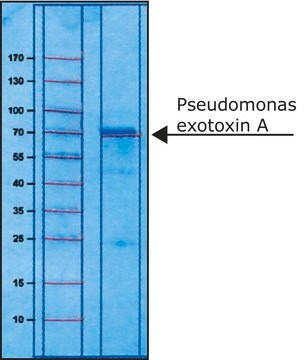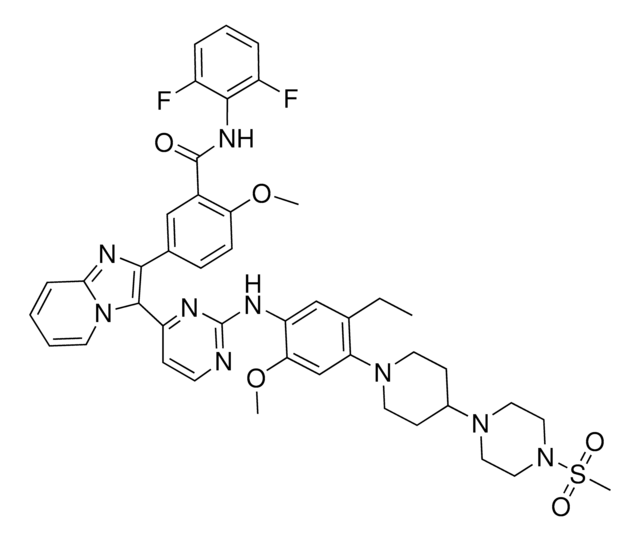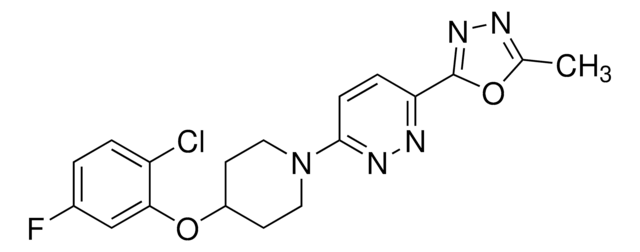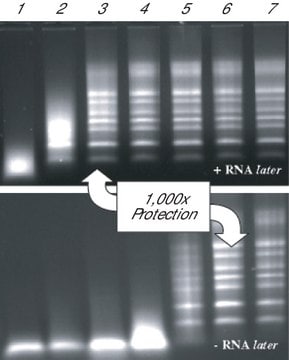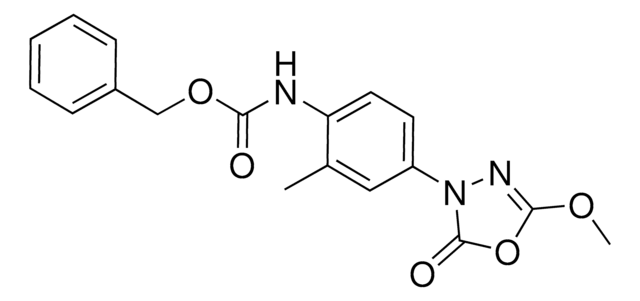Key Documents
PZ0176
SC-26196
≥98% (HPLC)
Synonim(y):
SC-26196, a,a-diphenyl-4-[(3-pyridinylmethylene)amino]-1-piperazinepentanenitrile; 2,2-diphenyl-5-(4-[[(1 E)-pyridin-3-yl-methylidene]amino]piperazin-1-yl)pentanenitrile
About This Item
Polecane produkty
Próba
≥98% (HPLC)
Postać
powder
kolor
white to tan
rozpuszczalność
DMSO: ≥10 mg/mL
temp. przechowywania
2-8°C
ciąg SMILES
N#CC(CCCN1CCN(CC1)\N=C\c2cccnc2)(c3ccccc3)c4ccccc4
InChI
1S/C27H29N5/c28-23-27(25-10-3-1-4-11-25,26-12-5-2-6-13-26)14-8-16-31-17-19-32(20-18-31)30-22-24-9-7-15-29-21-24/h1-7,9-13,15,21-22H,8,14,16-20H2/b30-22+
Klucz InChI
QFYKXKMYVYOUNJ-JBASAIQMSA-N
Zastosowanie
- in mouse inner medullary collecting duct (IMCD3) and human (female) embryonic kidney (HEK) 293 cell culture as Dulbecco′s modified eagle′s medium (DMEM) component
- in hepatic HepG2 cells
- in glioblastoma cell lines to test its effect post-radiation treatments
Działania biochem./fizjol.
Kod klasy składowania
11 - Combustible Solids
Klasa zagrożenia wodnego (WGK)
WGK 3
Temperatura zapłonu (°F)
Not applicable
Temperatura zapłonu (°C)
Not applicable
Certyfikaty analizy (CoA)
Poszukaj Certyfikaty analizy (CoA), wpisując numer partii/serii produktów. Numery serii i partii można znaleźć na etykiecie produktu po słowach „seria” lub „partia”.
Masz już ten produkt?
Dokumenty związane z niedawno zakupionymi produktami zostały zamieszczone w Bibliotece dokumentów.
Nasz zespół naukowców ma doświadczenie we wszystkich obszarach badań, w tym w naukach przyrodniczych, materiałoznawstwie, syntezie chemicznej, chromatografii, analityce i wielu innych dziedzinach.
Skontaktuj się z zespołem ds. pomocy technicznej

